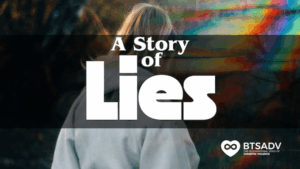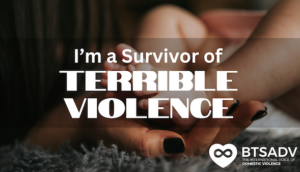We’ve all heard about abuse triggering or causing anxiety, PTSD, and/or depression. However, do we know what any of those terms mean? What exactly does one go through when they’re experiencing these types of mental illnesses or triggers?

Anxiety
Let us start by asking ourselves to define anxiety. What is it? Where does it come from? Anxiety is usually a feeling of fear, dread, uneasiness, or restlessness. It might cause someone to sweat, feel restless and tense, and even have a rapid heartbeat. Anxiety can also be a normal reaction to stress.
For example, one might feel anxious when faced with a problem at work, before taking a test, or before making an important decision. Not all anxiety is bad, as it can sometimes help you cope. Sometimes anxiety can give a bit of a boost and get someone motivated to keep going.
However, for some, there are no positive effects because some people have anxiety disorders, and this disorder can be overwhelming.
What causes anxiety disorders? Well, that is not exactly known. It can come from a variety of things such as genetics, brain chemistry, or even brain biology, and sometimes even just general stress, or your environment can play different roles.
PTSD
Next, what exactly is PTSD? PTSD stands for post-traumatic stress disorder. PTSD is a mental health condition triggered or caused by a traumatic event. You could experience the event or witness it for this condition to appear.
Symptoms of PTSD can include flashbacks, nightmares, and even severe anxiety. Many people who go through a traumatic event have a difficult time adjusting or coping with what they experienced. With time and care, symptoms usually improve, however, if they get ignored they can interfere with daily activities and can last anywhere from days to years.
Depression
Furthermore, let’s discuss depression. A common enemy with survivors of domestic abuse. Depression is usually a deep feeling of being sad along with a few other common occurrences. Such as lack of motivation, loss of interest in things you once enjoyed, and big changes in appetite whether it’s a little appetite or a big appetite, sleeping changes, a person struggling with depression could sleep very little or a lot.
A person struggling with depression may feel as if they are worthless or guilty. They may even have difficulty concentrating, or making decisions, oftentimes thoughts of death and suicide can come up.
It’s important to talk about these issues because they can all be factors in someone trying to survive, and even after surviving domestic violence, there are all these possible outcomes that one would have to acknowledge.
With the right resources, treatment, and a great support system, these circumstances and events could lessen.
Some of the types of referrals we offer:
You are always welcome to contact our Support Line at 855-BTS-1777, where one of our advocates can match your needs with available resources from private to public health and human agencies. Sometimes we can even link you or point you in the right direction for help.
- Basic Human Needs Resources – including food and clothing banks, shelters, rent assistance, and utility assistance.
- Physical and Mental Health Resources – including health insurance programs, Medicaid and Medicare, maternal health resources, health insurance programs for children, medical information lines, crisis intervention services, support groups, counseling, and drug and alcohol intervention and rehabilitation.
- Work Support – including financial assistance, job training, transportation assistance, and education programs.
- Access to Services in Non-English Languages – including language translation and interpretation services to help non-English-speaking people find public resources
- Children, Youth, and Family Support – including child care, after-school programs, educational programs for low-income families, family resource centers, summer camps, and recreation programs, mentoring, tutoring, and protective services.
- Suicide Prevention – referral to suicide prevention help organizations.
Help is available.
Healing is possible.
Make the call. Now is the time to start healing.
References:
Anxiety. (n.d.). Medline Plus. Retrieved May 3, 2022, from https://medlineplus.gov/anxiety.html#:%7E:text=Anxiety%20is%20a%20feeling%20of,before%20making%20an%20important%20decision.
Post-traumatic stress disorder (PTSD) – Symptoms and causes. (2018, July 6). Mayo Clinic. Retrieved May 3, 2022, from https://www.mayoclinic.org/diseases-conditions/post-traumatic-stress-disorder/symptoms-causes/syc-20355967#:%7E:text=Post%2Dtraumatic%20stress%20disorder%20(PTSD)%20is%20a%20mental%20health,uncontrollable%20thoughts%20about%20the%20event.
Psychiatry.org – What Is Depression? (n.d.). Psychiatry.Org. Retrieved May 3, 2022, from https://psychiatry.org/patients-families/depression/what-is-depression


